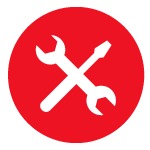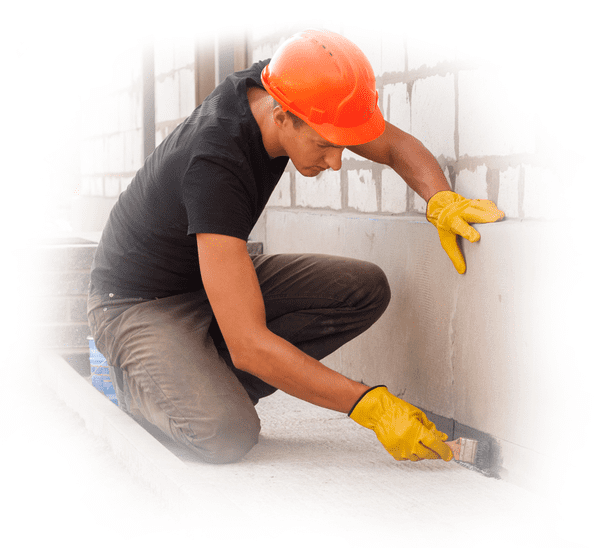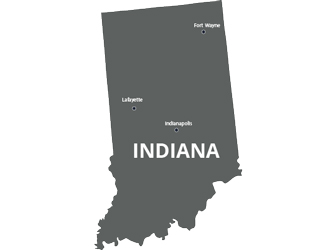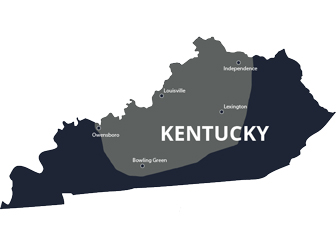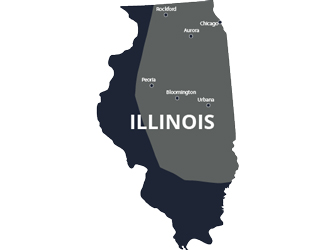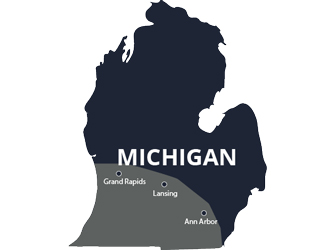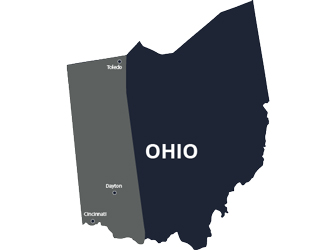When your foundation walls develop significant cracks or start to bow inward (or both!) you need to act quickly. Depending on your situation, the best method for repairing and stabilizing your foundation is carbon fiber straps, wall anchors, or helical tiebacks.
At Acculevel, we provide whole-home solutions that are customized to address your specific needs. We’re a family-owned and operated company that specializes in foundation repair and waterproofing. Since we opened our doors in 1996, we’ve helped more than 35,000 homeowners restore their homes to full strength, health, and stability.
When you met with your project advisor and discussed the best path forward, they reviewed your property thoroughly. At that time, they should have outlined any specific actions you need to take before repairs could be made. This article is not intended to take the place of your project advisor’s instructions; it is only meant to be a general overview of what you can expect to happen when we repair your home.
What Should Happen Before Your Foundation is Repaired?
Products and installation methods will vary, of course. We’ve broken down the variations by the major deciding factors.
Before Excavation
If you having wall anchors installed, the work crew will need to excavate and bury the steel anchor in your yard. Acculevel will call 811 and request for utility “locates” to be done before digging begins. As your installation date approaches, if there are still no marks or flags placed by the 811 agency, please notify our scheduling department @ (765) 200-6192. We will follow up on this as needed, but we need your help in determining if it has taken place before our installation team is dispatched to your job site.
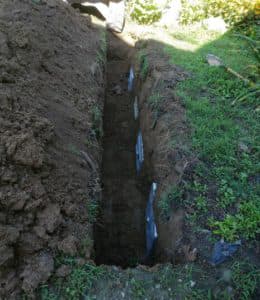
This photo was taken by an Acculevel team member. We installed wall anchors to repair an external retaining wall. You can see the excavation is done, and the anchors have been placed.
If you have any treasured plants or decorative pieces that will be in the way of the excavation, please relocate these before the installation date. Our crews can -and will- remove and dispose of items in the way, but they will do so in the most efficient method possible. In all likelihood, the plants they remove will not be salvageable.
Inside Your Basement
Clear The Area: No matter which repair method your home requires, the crews will have some tasks that must be done inside your basement. To prevent any damage to your belongings, please move everything at least 5 feet away from the wall being repaired. Also make sure that the path to the basement is clear, so that equipment and products can easily be conveyed to the wall in question.
Cover Furniture and Belongings: The installation process will generate some dust. Our crews use a shop-vac in conjunction with tools that make dust. If you can’t relocate furniture and other possessions entirely out of the room when work is done, you may want to cover items with sheets or drop cloths.
Turn Off Your HVAC: This may not be possible, depending on the season and weather. But if it is possible for you to turn off your heat/central air during the installation, this will definitely be helpful to you. While we do all we can to limit the dust in your home, some of it will get into the air. If your HVAC is in operation, it can “grab” onto this dust and share it with the rest of your home.
What Should You Expect During Bowing Wall Repairs?
No matter where you are on the property, you can expect to hear some noise from the equipment. The crews will need to grind, break up, or drill through concrete inside the home.
Inside Your Home
As we mentioned earlier, there will be some dust created during the installation. If you are having carbon fiber straps installed in your basement, you should be aware that the epoxy used to attach the straps has a strong odor. It’s not what I would consider pleasant, so this might be another good reason to turn your HVAC off during the installation.
If the weather requires the HVAC to continue to operate and you are sensitive to strong odors, you may want to leave the home during the epoxy process.
Outside Your Home
Carbon fiber straps don’t require any work done on the outside of your home, unless we’re also straightening the wall. Helical tiebacks are screwed into the earth outside your foundation through the basement wall. So only wall anchors require actual excavation in your yard.
You May Have Ruts In Your Yard
The excavation process will obviously include digging in your yard. Our crews will take every precaution they can, to minimize the evidence that remains. If we are using heavy equipment to dig, we will first put down plywood to “drive” across. This doesn’t guarantee that it won’t create ruts in the yard- that depends on the soil conditions and season. But the plywood reduces how severe or pronounced the ruts are.
Essentially, if it’s late summer and hasn’t rained a drop in three weeks, the ground will be more resistant to ruts. But if we’re installing mid-spring and the ground is super saturated, plywood won’t prevent the ground from forming ruts.
The Ground Will Not Be Level After Installation
We also put down plastic on the ground, to hold the displaced dirt as we dig. This is not a perfect solution, but it greatly reduces how much loose dirt ends up on your lawn and landscaping. Our crews will use this dirt to fill in the holes we dug, and haul away any excess dirt left over.
If you are planning any landscaping projects and would like us to leave the extra soil, please let your project manager know. We are happy to do so, but the crews are prepared to clear the job site of any leftover debris.
Dirt does not settle quickly, so we don’t level the ground after backfilling the holes. Instead, the crew will leave a small mounded pile of soil at each dig location. This is the best way to ensure that as the seasons change and settling occurs, there will be enough soil to fill the excavation points completely.
What Should You Do After Repairs Are Completed?
The answer to this question depends on the repair method that was used.
If we installed helical tiebacks: all you will need to do is some cleaning and rearranging in your basement.
If you had wall anchors installed: you’ll need to do the same cleaning and rearrangement of items in your basement. But you may also need to have a landscaping company adjust or redo the grading of your yard. It is essential that the ground around your house slopes down and away from your home. Proper grading is one of the best ways you can protect your foundation against water damage and hydrostatic pressure.
If you had carbon fiber straps installed: Please Do NOT Touch the straps until they have cured (dried). Keep children and pets out of the basement, and make certain you don’t accidentally come into contact with the epoxy yourself.
The epoxy isn’t poisonous, but it’s incredibly sticky and cannot be easily removed. Our crews have learned this the hard way- if you get epoxy on your clothes and try to pull it off? The epoxy may come off, but it’s going to bring the material with it, and leave a hole in its place.
Once the straps have cured, they can be painted over. You will need to lightly sand over the strap. You don’t want to damage it -don’t use a heavy grit sandpaper! You just need to create a bit of texture on the surface. This will allow your primer (and coats of paint) to adhere smoothly.
A Final Point About Foundation Repairs
Please remember straightening a foundation wall is a very different process than stabilizing a foundation. It is essential that you and your project advisor discuss your plans for your home, so that we can be sure we are providing the best whole-home solution for you and your family.
If You Have More Questions About Foundation Repairs
We train our project advisors individually and as a team, to ensure they are the foundation experts you need to correctly diagnose your home. Our intention is to provide you with an advisor who will guide you through the repair process, address your concerns, and clearly outline what results you should expect from the repairs.
You should have your project advisor’s phone number and email address, so that you can contact them with any further questions or concerns. But we also strive to answer all of the frequently asked questions we receive from homeowners on our website’s learning center.
Possible Topics Include:
Want to avoid foundation problems in the future? We explore the top 5 ways to avoid them, here.
While we’re discussing DIY projects, this is a checklist of how to inspect your home for potential issues. We recommend homeowners conduct an inspection twice a year, usually spring and fall.
If your future plans include finishing or remodeling your basement, we explain why basement encapsulation should be your first step.
And if you do have a finished basement, an egress window is a necessary addition that provides you with a safe emergency exit- and additional home value.










